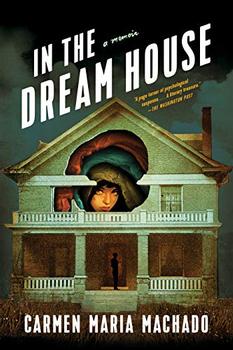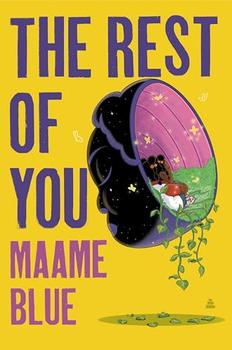Summary | Excerpt | Reviews | Beyond the Book | Readalikes | Genres & Themes | Author Bio

Dream House as Overture
I never read prologues. I find them tedious. If what the author has to say is so important, why relegate it to the paratext? What are they trying to hide?
Dream House as Prologue
In her essay "Venus in Two Acts," on the dearth of contemporaneous African accounts of slavery, Saidiya Hartman talks about the "violence of the archive." This concept—also called "archival silence"—illustrates a difficult truth: sometimes stories are destroyed, and sometimes they are never uttered in the first place; either way something very large is irrevocably missing from our collective histories.
The word archive, Jacques Derrida tells us, comes from the ancient Greek ἀρχεῖον: arkheion, "the house of the ruler." When I first learned about this etymology, I was taken with the use of house (a lover of haunted house stories, I'm a sucker for architecture metaphors), but it is the power, the authority, that is the most telling element. What is placed in or left out of the archive is a political act, dictated by the archivist and the political context in which she lives. This is true whether it's a parent deciding what's worth recording of a child's early life or—like Europe and its Stolpersteine, its "stumbling blocks"—a continent publicly reckoning with its past. Here is where Sebastian took his first fat-footed baby steps; here is the house where Judith was living when we took her to her death.
Sometimes the proof is never committed to the archive—it is not considered important enough to record, or if it is, not important enough to preserve. Sometimes there is a deliberate act of destruction: consider the more explicit letters between Eleanor Roosevelt and Lorena Hickok, burned by Hickok for their lack of discretion. Almost certainly erotic and gay as hell, especially considering what wasn't burned. ("I'm getting so hungry to see you.")
The late queer theorist José Esteban Muñoz pointed out that "queerness has an especially vexed relationship to evidence... . When the historian of queer experience attempts to document a queer past, there is often a gatekeeper, representing a straight present." What gets left behind? Gaps where people never see themselves or find information about themselves. Holes that make it impossible to give oneself a context. Crevices people fall into. Impenetrable silence.
The complete archive is mythological, possible only in theory; somewhere in Jorge Luis Borges's Total Library, perhaps, buried under the detailed history of the future and his dreams and half dreams at dawn on August 14, 1934. But we can try. "How does one tell impossible stories?" Hartman asks, and she suggests many avenues: "advancing a series of speculative arguments," "exploiting the capacities of the subjunctive (a grammatical mood that expresses doubts, wishes, and possibilities)," writing history "with and against the archive," "imagining what cannot be verified."
The abused woman has certainly been around as long as human beings have been capable of psychological manipulation and interpersonal violence, but as a generally understood concept it—and she—did not exist until about fifty years ago. The conversation about domestic abuse within queer communities is even newer, and even more shadowed. As we consider the forms intimate violence takes today, each new concept—the male victim, the female perpetrator, queer abusers, and the queer abused—reveals itself as another ghost that has always been here, haunting the ruler's house. Modern academics, writers, and thinkers have new tools to delve back into the archives in the same way that historians and scholars have made their understanding of contemporary queer sexuality reverberate through the past. Consider: What is the topography of these holes? Where do the lacunae live? How do we move toward wholeness? How do we do right by the wronged people of the past without physical evidence of their suffering? How do we direct our record keeping toward justice?
Excerpt from In the Dream House . Copyright © 2019 by Carmen Maria Machado. Reprinted with the permission of Graywolf Press, Minneapolis, Minnesota, www.graywolfpress.org.




Outside of a dog, a book is man's best friend. Inside of a dog it's too dark to read.
Click Here to find out who said this, as well as discovering other famous literary quotes!
Your guide toexceptional books
BookBrowse seeks out and recommends the best in contemporary fiction and nonfiction—books that not only engage and entertain but also deepen our understanding of ourselves and the world around us.